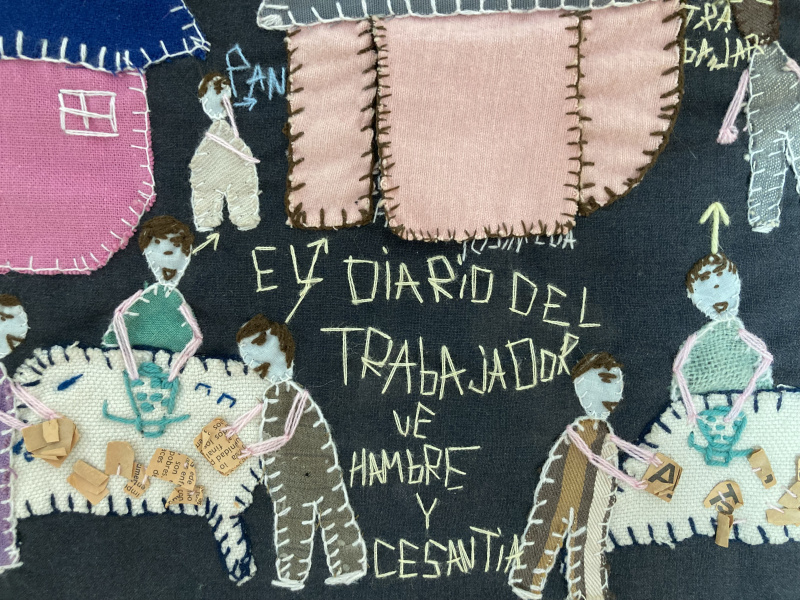

ARPILLERISTAS
Arpillera is Spanish for jute and refers to the base of these artworks, for which jute is often used. Arpilleras are traditionally made by women and often depict scenes from everyday life or social issues. They usually consist of colourful patches of fabric and embroidery.
During the military dictatorship of Augusto Pinochet in Chile (1973-1990) arpilleras became an important means for women to tell stories of oppression, poverty, and human rights violations, such as disappearances of loved ones. As open criticism of the government was forbidden, women used these textile works to secretly share their experiences and emotions. Many of these women, known as Arpilleristas, were mothers, widows or relatives of disappeared persons.
Thanks to their limited size, Arpilleras could be smuggled out of the country rolled up to inform people outside Chile about state violence and human rights violations. This is how the Arpilleras in DIARY OF A WORKER, together with political refugees, also ended up in the Netherlands in the 1970s.




